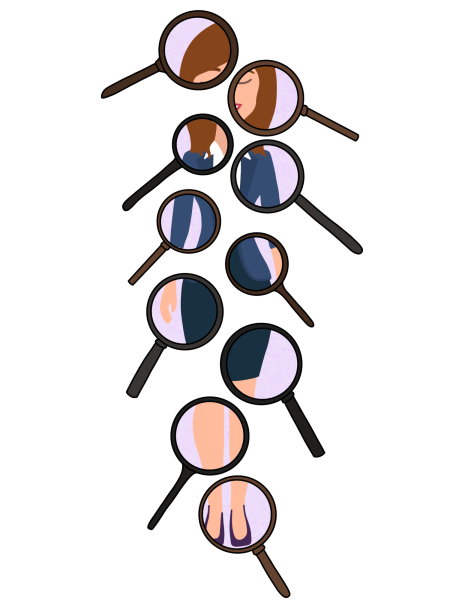The Healing Power of Literature
As society continues to progress through the 21st century, there has been exponential growth in the amount of time dedicated to the concept of personal well-being, as opposed to physical health. Researchers, academics and policy-makers have rightly deduced that an individual’s mental and emotional well-being are just as important as the other side of the coin. Fortunately, institutions, including Colgate University, have made genuine efforts to establish an environment that facilitates the enhancement of personal wellbeing. I am not ashamed to say that, starting my first semester on campus, I made numerous visits to the Counseling Center for a variety of reasons. As my interactions with counselors advanced, I came to realize how important finding a healthy school/life balance is when seeking to limit levels of stress, anxiety and loneliness that often spring up without prior notice. Therefore, I made it a priority to find activities that originated outside of the classroom where I could shut myself off from the outside world in a healthy manner. One activity that has proved to be immensely helpful in strengthening my emotional and mental health is reading. By providing me with many opportunities to dive deep into the viewpoints of writers who span across a plethora of subjects, I have become a much more tolerant human being, especially when it comes to family matters. Additionally, reading has made me aware of the uniquely profound struggles endured by others that make my life struggles seem more like inconveniences and less like existential crises. This observation made me realize that no matter how bad life may seem (or actually be), it could certainly be worse. In this special article, I am going to depart from writing about financial markets and instead write briefly about two of the most influential books I have consumed since establishing reading as a personal health priority two years ago.
The Great Good Thing: A Secular Jew Comes to Faith in Christ | Andrew Klavan |
ISBN: 978-0718017347
In The Great Good Thing, Andrew Klavan, well known for writing excellent fiction literature, changes course and instead composes a memoir. In this fluid read, Klavan recaps many of the life struggles he endured, starting from a very young age, including a fractured relationship with his father that never had a chance at revival. Though his family was Jewish, Klavan was never able to cross the bridge from ethnicity to religion. He was Jewish but grew up an agnostic, which happened to be one of the larger wedges that drove him and his father further apart. Having been interested in writing from an early stage in life, Klavan began traveling the country to find his breakthrough. However, things quickly turned sour. Before long, Klavan was living a life dependent on drugs, alcohol and deception. He attended UC Berkeley, only to drop out in short order. He worked graveyard shifts at menial jobs just to stay afloat. Altogether, Klavan was living an utterly meaningless life and contemplated suicide on numerous occasions. But, after meeting his wife at UC Berkeley, attending intense sessions of psychotherapy and writing books that were finally recognized by publishers, Klavan could see a light at the end of the tunnel. In fact, the Jewish man turned to Christianity as a source of inspiration and purpose that ultimately propelled him through the dark waters of depression and anxiety. As a result, at 49 years of age, Klavan was officially baptized a Christian. This book serves as a reminder that in order to find one’s way to the truth, one must first consider abandoning everything they originally thought to be true.
Man’s Search for Meaning | Viktor E. Frankl | ISBN: 978-0807014271
One of the most popular books ever written, Viktor E. Frankl’s 1946 masterpiece shines a light on his experiences as a prisoner in Nazi concentration camps during World War II. It should go without saying that life as a concentration camp prisoner during World War II did not bring about a particularly strong desire to live. The humiliating, inhumane and cruel actions that were thrust on top of millions of innocent lives are something that puts me in disbelief as I write this sentence. However, Frankl was somehow able to garner a sense of purpose and meaning for his life during his time as a prisoner, which is admirable in and of itself. In fact, Frankl outlines this psychotherapeutic technique throughout much of the book. Frankl says that by identifying a unique purpose in life that is able to elicit some sense of positivity and then immediately placing oneself in that positive scenario, one is able to endure the weight of even the darkest horrors. Man’s Search for Meaning was one of the most influential and moving books I have ever read. The mixture of emotions that flowed through my mind and body with each page flip was remarkable. The sense of sadness, anger, fear, joy, admiration and other feelings created a mixture of emotions that is difficult to describe. As I mentioned earlier, life is usually not nearly as bad as it could be. Whenever I begin to feel immense bouts of sadness, anxiety or loneliness, I think back to Frankl’s experiences. If he was able to find a purpose in life, I sure as hell could.
The power of reading is limitless, yet fewer young adults take advantage of this gift. According to EdSurge, an outlet that reports on the future of learning, “In 1980, 60 percent of 12th graders said they read a book, newspaper or magazine every day that wasn’t assigned for school. By 2016, only 16 percent did.” This dramatic drop is both concerning and understandable. As tasks continue to pile up, people of all ages seem to have less time on their hands to engage in activities that predated the mass information and technology age that we currently live in. As a college student myself, I certainly understand that. With that being said, I would still encourage all my fellow students to take a break from schoolwork, make themselves a cup of coffee and crack upon a book that they find meaningful. You may be very surprised where it takes you and how it changes you for the better along the way.
Richard Falvo is a junior from New Hartford, NY pursuing a double concentrating in economics and philosophy. After joining The Maroon-News in Fall 2019,...







